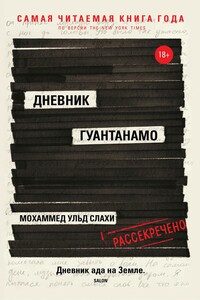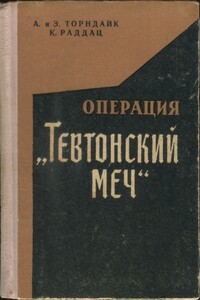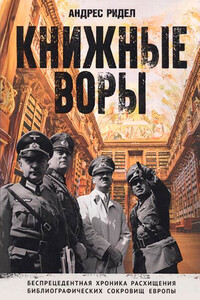The Run of His Life: The People v. O. J. Simpson - [23]
Judge Schoenberg finally cut off the monologue. “When you’re talking to other people, they’re interested in the results and what you did for them,” he began deferentially. “I’m not interested in that. I’m interested in the work that you did, the hours that you put in, and what you were doing. I know you’re used to talking to people that are interested in what results you achieved, and I’m not.”
Simpson replied, “Well, I was told, Your Honor, that I had to put in time. I think I put in not only the time that was required of me but far beyond those hours… I guess what I’m trying to say is I wasn’t trying to get a hundred hours into community service. I tried to do a good job, and it just so happened that I put in more than the hundred hours that I was sentenced to by the court.”
The prosecutor, Rob Pingel, was frustrated-and obviously feeling snookered by how Simpson’s entire case had unfolded. He complained that by organizing the fund-raiser, Simpson had merely engaged in business as usual, rather than submitting to the customary kind of community service.
After Weitzman stepped in to defend the worthiness of Simpson’s work, Judge Schoenberg asked a clever question, albeit with considerable solicitude. “There’s a question I’m afraid to ask, and that is this: If this whole case hadn’t come about, would Mr. Simpson have done the same thing for the charity?” Simpson replied, “Certainly not the hours that I put in… I went into this full-time… hoping to influence the court.” Simpson added sarcastically, “I know that’s not a worthy charity, it seems, in this room.”
The judge raised the prospect of Simpson doing a more conventional form of community service before being formally released from supervision. Weitzman informed the judge that this would not be possible: Simpson was moving to New York. “He’s moving Sunday,” Weitzman said. “Football season starts.” (Simpson was moving to NBC to cohost its pregame shows on Sundays.)
Remembering that Simpson had also agreed to undergo counseling as part of his sentence, the judge asked, “What’s going to happen with the other condition about counseling?”
“I mean, I’m sure there are counselors in New York,” Simpson answered. “I’ve gone to that religiously. I don’t know how often I can discuss one incident in my entire life, but I’ll continue to do that.”
“For whatever it’s worth, Your Honor,” Weitzman then said, “I think the counselor did indicate that he believes whatever problem existed doesn’t exist any longer. The counselor said, if necessary, he’d be willing to do it via telephone…”
Simpson apparently couldn’t help himself from adding, “Maybe I’m wrong in saying this, but I just don’t understand. At that point when we’re talking about counseling, I’m more than willing to do it, and I’ve been doing it religiously. It’s just, how long can I-I mean, I really have reached a point where I can write a book about all of this. I don’t even know what else to talk about. I come in. I sit down with him. We start talking about other things that are happening in my life at this point. I can’t talk about one incident. I mean, I just don’t know how long, sir, I can talk about one incident in my entire life.
“I think I’ve been a great citizen. My wife has indicated we have a great marriage. We had one bad night in our life.”
The judge allowed Simpson to be counseled by telephone. He never had to appear in court again. He wrote Nicole a series of apologetic letters reflecting his hope that they could continue their marriage. In an interview, later in 1989, with Roy Firestone on Up Close, a sports talk show on ESPN, Simpson described the incident by saying, “We had a fight. We were both guilty. No one was hurt. It was no big deal and we got on with our lives. It wasn’t that big of a deal.”
Simpson’s probation expired uneventfully, and he had no more formal contact with the criminal justice system for almost five years-until, that is, June 13, 1994, the day after his ex-wife’s death, when he returned to his home in Brentwood and found that the police urgently wanted to speak with him.
After the judge granted the search warrant, Vannatter returned to the Rockingham house shortly before noon on June 13. At that point, the detective gave an order to Donald Thompson, one of the uniformed patrol officers guarding the perimeter of Simpson’s property. Since the entire area was now considered a crime scene-and since Vannatter now had a warrant to search the house and the Bronco-he did not want Simpson or anyone else allowed inside. If Simpson arrives, Vannatter instructed Thompson, detain him and let me know he’s here. The precise words Vannatter used with regard to Simpson later became a point of some controversy. Thompson remembered that Vannatter said, “Hook him up”-that is, handcuff him. Vannatter recalled that he simply said Simpson should be detained until detectives could speak with him.
Simpson had indeed caught the first available flight from Chicago to Los Angeles, and he made his way home at about 12:10 P.M. Curiously for a man who had been told only that his ex-wife had been killed, not necessarily murdered, Simpson had telephoned from his hotel room in Chicago to arrange for a criminal defense attorney to meet him upon his return home. That was Howard Weitzman, who had represented him so successfully in his abuse case. So Weitzman-as well as Simpson’s longtime secretary, Cathy Randa; his business lawyer, Skip Taft; and an old friend, Robert Kardashian-were waiting for Simpson on the sidewalk when he arrived at his house. Under the watchful eye of several news cameras, Simpson left his bags with Kardashian and hurried up to the front door. At that point, Weitzman, Randa, and Kardashian were not allowed on the property. Simpson was escorted to the front door by Detective Brad Roberts, Mark Fuhrman’s partner, who was assisting in the search of the house.

Тюрьма в Гуантанамо — самое охраняемое место на Земле. Это лагерь для лиц, обвиняемых властями США в различных тяжких преступлениях, в частности в терроризме, ведении войны на стороне противника. Тюрьма в Гуантанамо отличается от обычной тюрьмы особыми условиями содержания. Все заключенные находятся в одиночных камерах, а самих заключенных — не более 50 человек. Тюрьму охраняют 2000 военных. В прошлом тюрьма в Гуантанамо была настоящей лабораторией пыток; в ней применялись пытки музыкой, холодом, водой и лишением сна.

В книге рассказывается история главного героя, который сталкивается с различными проблемами и препятствиями на протяжении всего своего путешествия. По пути он встречает множество второстепенных персонажей, которые играют важные роли в истории. Благодаря опыту главного героя книга исследует такие темы, как любовь, потеря, надежда и стойкость. По мере того, как главный герой преодолевает свои трудности, он усваивает ценные уроки жизни и растет как личность.

Брошюра написана известными кинорежиссерами, лауреатами Национальной премии ГДР супругами Торндайк и берлинским публицистом Карлом Раддацом на основе подлинных архивных материалов, по которым был поставлен прошедший с большим успехом во всем мире документальный фильм «Операция «Тевтонский меч».В брошюре, выпущенной издательством Министерства национальной обороны Германской Демократической Республики в 1959 году, разоблачается грязная карьера агента гитлеровской военной разведки, провокатора Ганса Шпейделя, впоследствии генерал-лейтенанта немецко-фашистской армии, ныне являющегося одним из руководителей западногерманского бундесвера и командующим сухопутными силами НАТО в центральной зоне Европы.Книга рассчитана на широкий круг читателей.

Книга Стюарта Джеффриса (р. 1962) представляет собой попытку написать панорамную историю Франкфуртской школы.Институт социальных исследований во Франкфурте, основанный между двумя мировыми войнами, во многом определил не только содержание современных социальных и гуманитарных наук, но и облик нынешних западных университетов, социальных движений и политических дискурсов. Такие понятия как «отчуждение», «одномерное общество» и «критическая теория» наряду с фамилиями Беньямина, Адорно и Маркузе уже давно являются достоянием не только истории идей, но и популярной культуры.

Книга представляет собой подробное исследование того, как происходила кража величайшей военной тайны в мире, о ее участниках и мотивах, стоявших за их поступками. Читателю представлен рассказ о жизни некоторых главных действующих лиц атомного шпионажа, основанный на документальных данных, главным образом, на их личных показаниях в суде и на допросах ФБР. Помимо подробного изложения событий, приведших к суду над Розенбергами и другими, в книге содержатся любопытные детали об их детстве и юности, личных качествах, отношениях с близкими и коллегами.

10 мая 1933 года на центральных площадях немецких городов горят тысячи томов: так министерство пропаганды фашистской Германии проводит акцию «против негерманского духа». Но на их совести есть и другие преступления, связанные с книгами. В годы Второй мировой войны нацистские солдаты систематически грабили европейские музеи и библиотеки. Сотни бесценных инкунабул и редких изданий должны были составить величайшую библиотеку современности, которая превзошла бы Александрийскую. Война закончилась, но большинство украденных книг так и не было найдено. Команда героических библиотекарей, подобно знаменитым «Охотникам за сокровищами», вернувшим миру «Мону Лизу» и Гентский алтарь, исследует книжные хранилища Германии, идентифицируя украденные издания и возвращая их семьям первоначальных владельцев. Для тех, кто потерял близких в период холокоста, эти книги часто являются единственным оставшимся достоянием их родных.